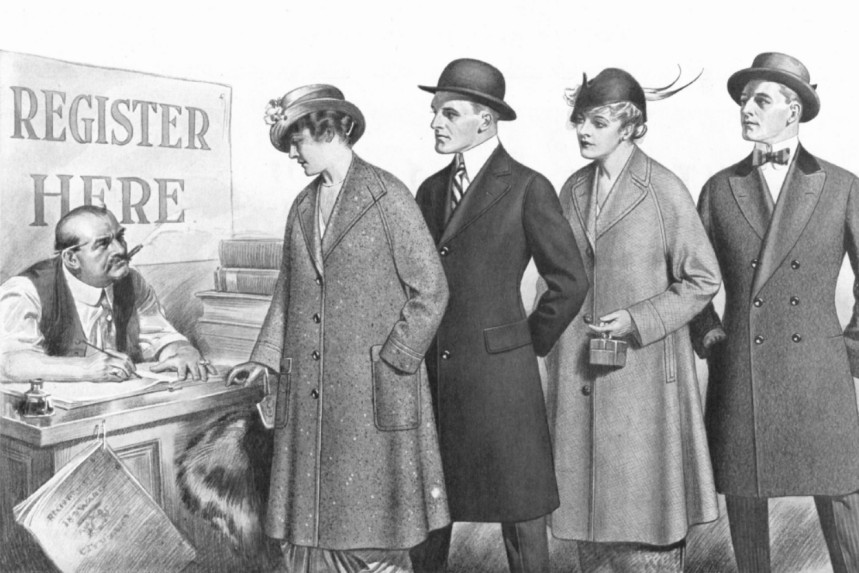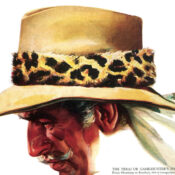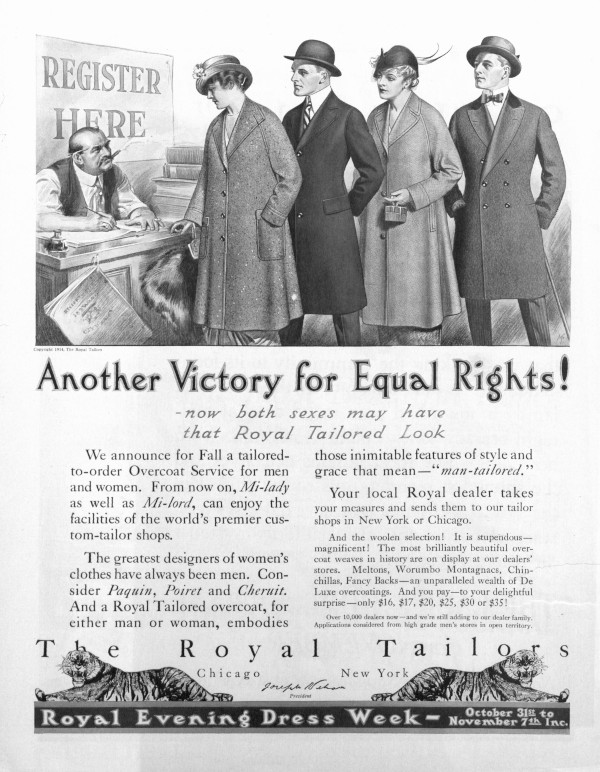
The Royal Tailors
October 31, 1914
(Click to Enlarge)
While women may have been relieved to hear that they had equal rights when it came to tailored clothing (and that “the greatest designers of women’s clothes have always been men”), they wouldn’t have the right to vote for another six years.
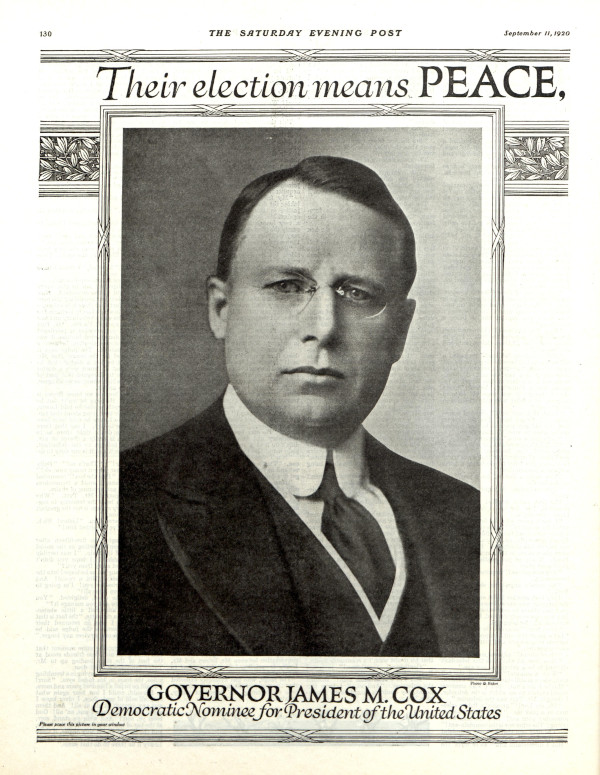
September 11, 1920
(Click to Enlarge)
Presidential candidate James M. Cox ran this full-page advertisement in the Post for the 1920 election, but his Republican competitor Warren G. Harding won in a landslide. Harding’s 26.2 percent victory margin remains the largest popular-vote percentage margin in presidential elections since the re-election of James Monroe in 1820, when Monroe ran unopposed.
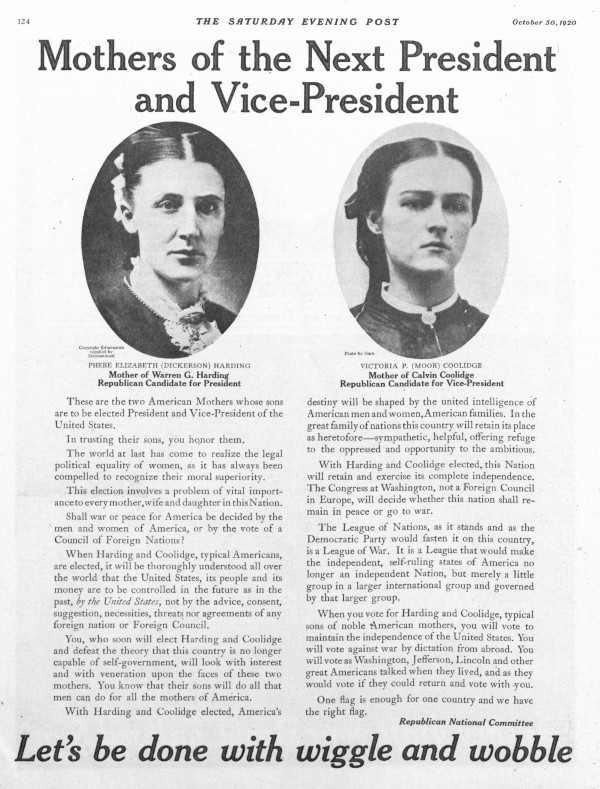
October 30, 1920
(Click to Enlarge)
The Republicans took a different tack in advertising their presidential candidate, featuring the mothers of Harding and vice presidential candidate Calvin Coolidge. Emphasizing their opposition to the League of Nations, the ad promised that “When you vote for Harding and Coolidge, typical sons of noble American mothers, you will vote to maintain the independence of the United States.”
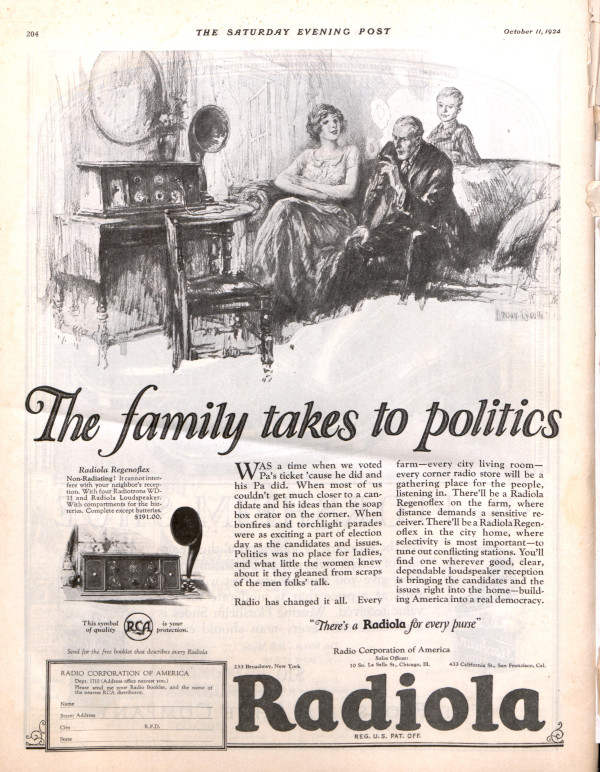
Radiola
October 11, 1924
(Click to Enlarge)
Women had recently won the right to vote, and Radiola promised to keep them informed about political candidates: “Politics was no place for ladies, and what little the women knew about it they gleaned from scraps of the men folks’ talk. Radio has changed it all.”
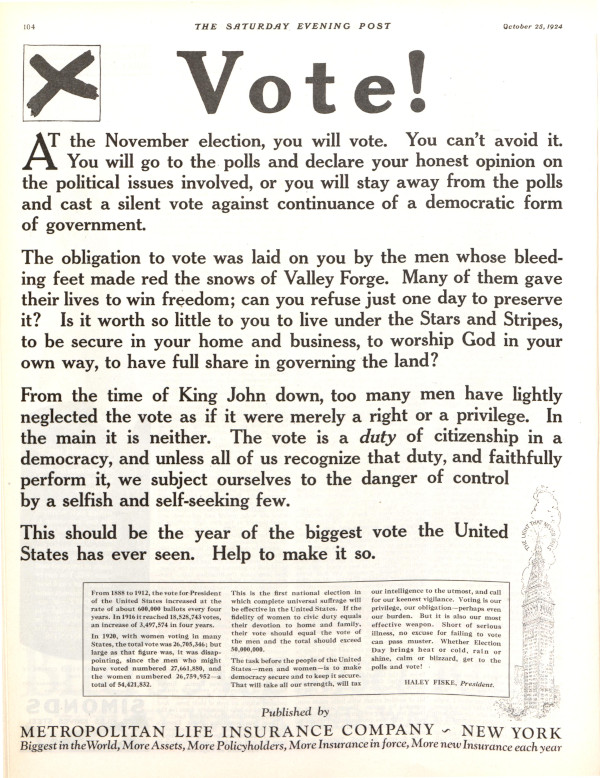
Metropolitan Life Insurance Company
October 25, 1924
(Click to Enlarge)
“The vote is a duty of citizenship in a democracy, and unless all of us recognize that duty, and faithfully perform it, we subject ourselves to the danger of control by a selfish and self-seeking few.”
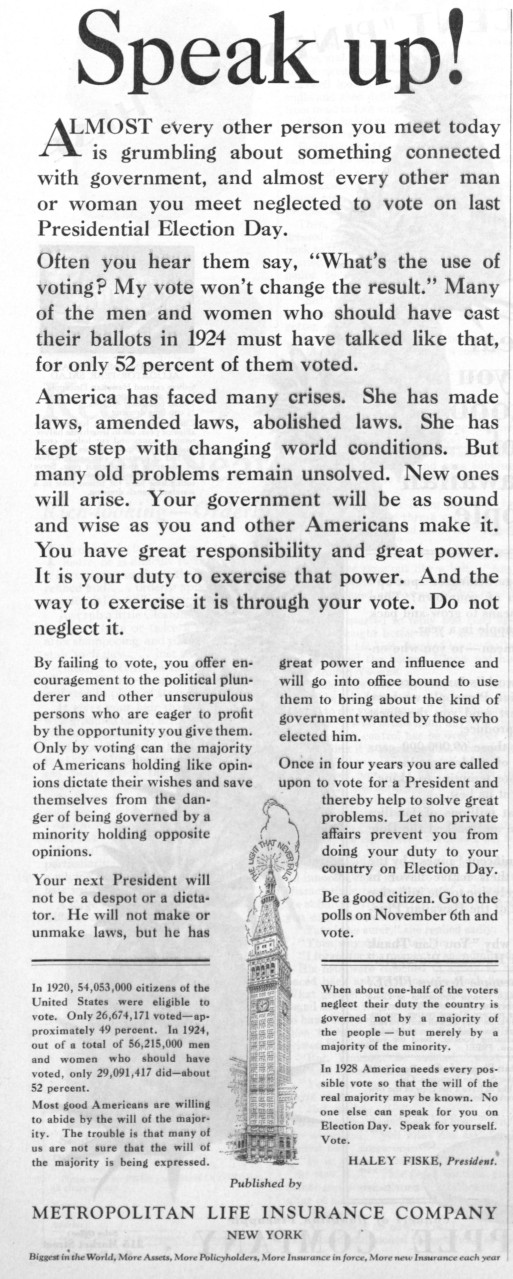
Metropolitan Life Insurance Company
October 27, 1928
“By failing to vote, you offer encouragement to the political plunderer and other unscrupulous persons who are eager to profit by the opportunity you give them.”
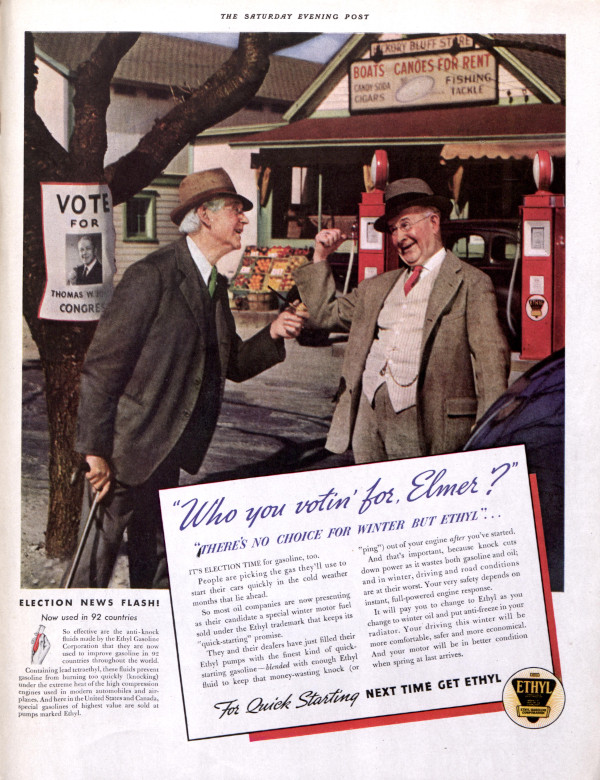
Ethyl Gasoline Corporation
October 31, 1936
(Click to Enlarge)
This ad encouraged consumers to “vote for” Ethyl gasoline to keep the “knock” out of their engines, especially during winter. Ethyl Gasoline Corporation was founded in 1923, a collaboration between GM, Esso, and DuPont to manufacture an additive to make leaded gasoline. Many workers at the plants soon began to suffer from confusion, hallucinations, and even death from lead poisoning. Lead as an additive in gasoline was phased out in the mid-1970s.
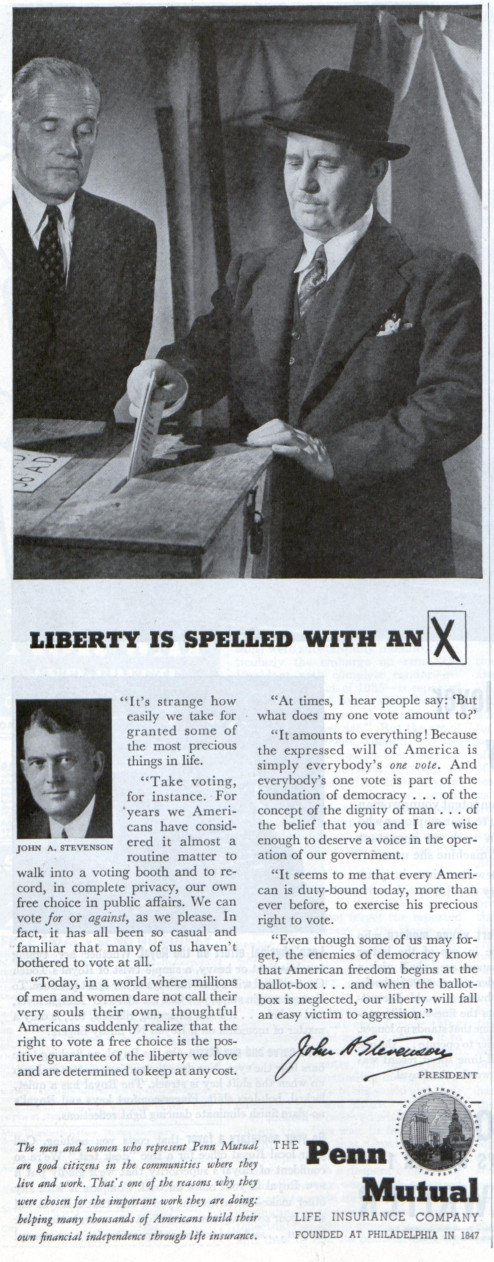
The Penn Mutual Life Insurance Company
November 2, 1940
“Even though some of us may forget, the enemies of democracy know that American freedom begins at the ballot-box . . . and when the ballot-box is neglected, our liberty will fall an easy victim to aggression.”
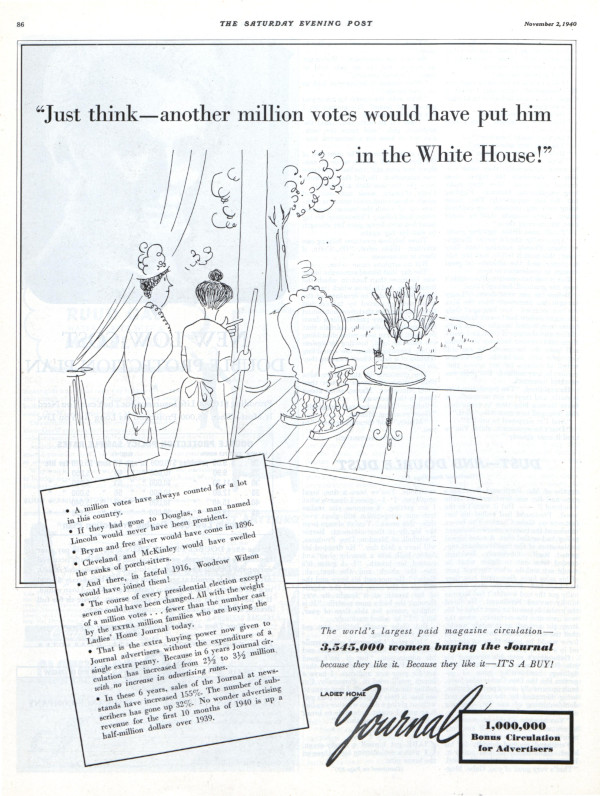
Ladies Home Journal
November 2, 1940
(Click to Enlarge)
The Ladies Home Journal tried to convince prospective advertisers with the rather convoluted argument that because the course of most presidential elections could have been changed with a million votes, the Journal’s million-family increase in circulation should compel them to buy ads.
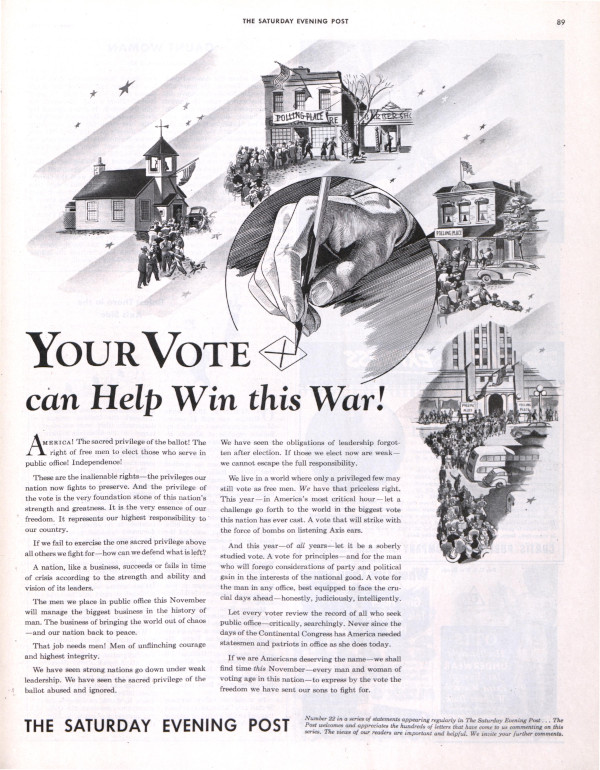
The Saturday Evening Post
October 31, 1942
(Click to Enlarge)
In the midst of World War II, the Post used a page from its own magazine to encourage people to vote in this mid-term election: “And this year—of all years—let it be a soberly studied vote. A vote for principles—and for the man who will forego considerations of party and political gain in the interests of the national good. A vote for the man in any office, best equipped to face the crucial days ahead—honestly, judiciously, intelligently.”
Become a Saturday Evening Post member and enjoy unlimited access. Subscribe now
